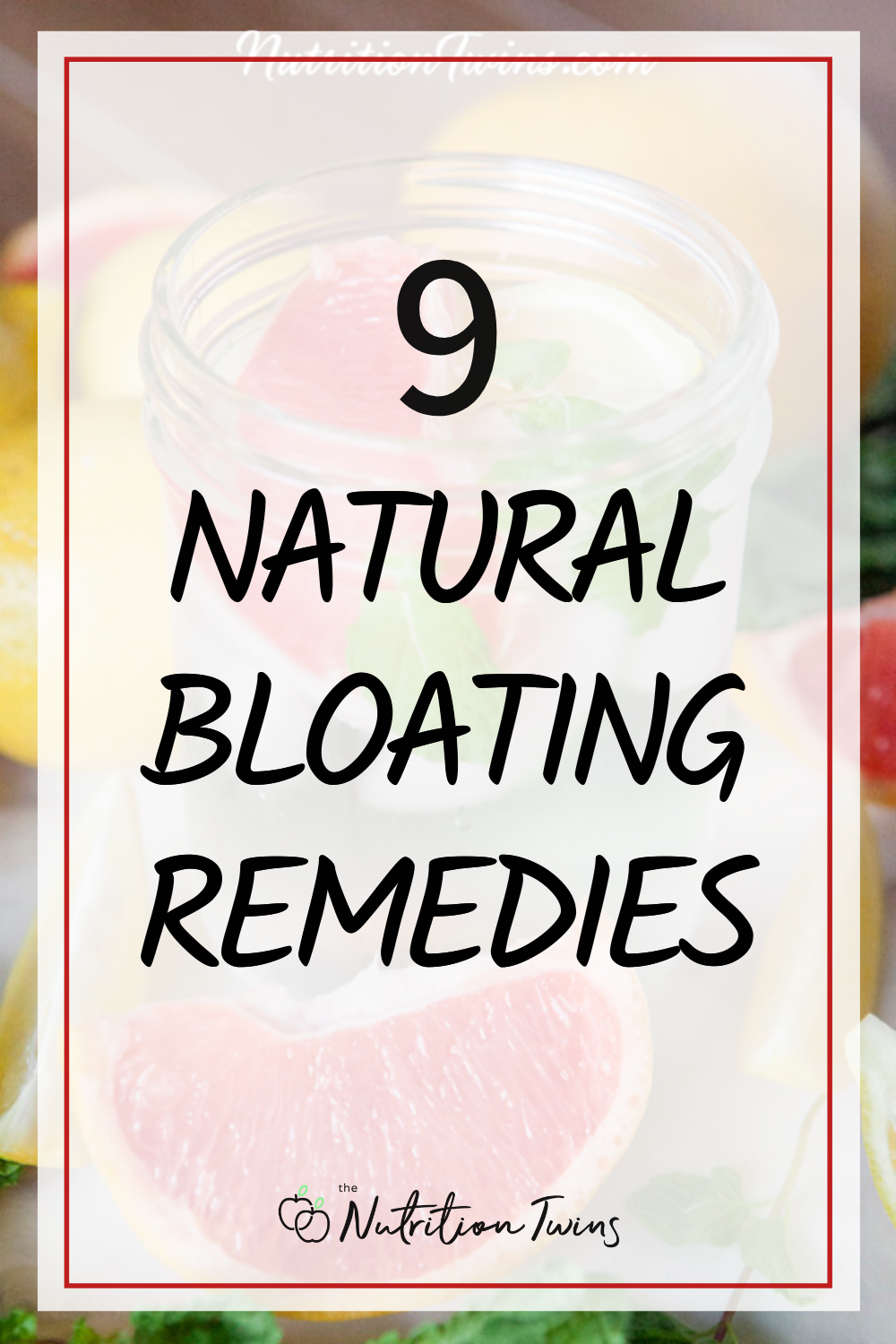
If you’ve overindulged in delicious food or drinks and now are paying the price, feeling heavy and bloated, the good news is there are easy, foolproof ways for you to immediately reduce bloating naturally and feel lighter and more energetic. Below we’re sharing these tips that we use with our clients to help them to immediately get back on the healthy train and lose the puffiness.
Watch the video or read the article below.
1. Reduce S, S & C:
Salt, Sugar & Carbs. While you likely have heard that these are bloating, we’ve found that most people make mistakes when trying to reduce them and when trying to battle the bloat.
Salt: Our second book, The Secret To Skinny: How Salt Makes You Fat, delves in deep and the best way to prevent bloating is to avoid salty foods, because sodium causes the body to retain water. Many people think they are in the clear if they don’t add salt to their food, but the truth is that there are many hidden sources of sodium that you might not think about, from bread, tomato sauce, canned soups to salad dressings, and more. And many healthy people “in-the-know” go for a salad when trying to reduce bloat and don’t realize that salad dressing or a few pieces of feta or croutons, are loaded with salt. It’s important to read labels and look for sodium since its’ lurking everywhere.
- Keep your distance from pre-packaged foods, not just snacks and sweets (while these are biggies!), sodium-packed appetizers, entrees, and sides, like mashed potatoes and deli meat are major sodium offenders.
- Keep in mind that salt also increases cravings and makes you hungrier and thirstier, which is never ideal for a bloated belly.

Sugar: Sugar is like salt in that it intensifies cravings and makes you hungrier and thirstier, making a water-logged belly even worse.
And while sugar doesn’t directly make you retain water, eating refined carbs, like cake and cookies and pasta too, lead to rapid spikes in blood sugar and insulin levels. When your insulin levels are high, your body responds by holding on to sodium by boosting the reabsorption of sodium in the kidneys1. Plus, sugar causes inflammation and inflammation comes with water, so it bloats you.
This is what we tell ourselves 😉
Carbs: While we’re all for whole grains, and consuming a half cup of cooked oatmeal or sweet potato should not bloat the average person—and could, in fact, help to prevent bloat by preventing constipation and the bloat associated with it—most people tend to especially eat the grains that are refined. You know, those processed grains, doughy-carbs like bagels and white bread that don’t offer the benefits of the healthy nutrients for longevity and the fiber that will help to prevent bloating from constipation, so there are no redeeming anti-bloat benefits. And getting too many of most carbs, like pasta, cookies and even too much whole wheat pasta will increase bloat for many people.
Keep in mind that most starches, including potatoes, corn, noodles, and wheat, produce gas as they are broken down in the colon. For some people, it’s simply the portion that they eat, that is too large, resulting in a puffy stomach. And while whole grains are great for your body, in large portions they too, can create gas and bloating. Also consider that many people are not allergic to wheat but do find that they are sensitive and when they cut back significantly, they feel a lot better and a lot less bloated. (This is very different than celiac disease where intestinal lining is damaged by gluten-containing foods including wheat, barley, oats and rye.)
In addition, carbs themselves are stored in the muscle as glycogen (muscle energy) and while this is a good thing to have some for exercising, each pound of carbs holds three pounds of water with it and can make you feel like you’re retaining water. So in this way carbohydrates tend to cause your body to store three times more water compared to protein or fat.
Also, refined carbs can indirectly lead to water retention, just like sugar. Examine your belly after a large meal of pasta and see how you feel. Keep in mind that carbs, salt and sugar all lead to bloating—and often it’s the salt and sugar in the carbs that are contributing to the bloating more than the carbs themselves.
We recommend sticking to no more than one-half cup grains per sitting when you are trying to fight bloat, and choosing whole grain—this works for our clients who are looking for some flat-belly benefits, even when they are not working to prevent bloat.
2. Make a salad with dandelion greens.
Dandelion is a natural diuretic and works by making you urinate more frequently. While there haven’t been many studies on dandelion greens in humans, there is very positive research showing this2. And we find it especially interesting that several of our clients who have eaten more than one cup of raw dandelion greens at one sitting actually get muscle cramps from the diuretic effect, the same way that you would if you had a tough workout from the loss of electrolytes. We advise anyone eating more than a cup to have 400 mg of magnesium, ideally from food and if not from a magnesium supplement.
Another score for dandelion greens and your gut is that they are one of the best sources of prebiotic fiber to feed the good bacteria in your digestive tract and keep your gut healthy and happy When your gut microbiome is in check, the bad bacteria doesn’t taking over and cause extra gas and bloating.
If dandelion greens taste bitter to you, try having a little them mixed with other greens for several days in a row (at most 21), and your taste buds will adjust as your saliva will develop a protein that binds to the bitter to taste to mask it. Also try flavorful olive oil dressings, etc. as you adjust. Admittedly, we thought eating dandelion greens raw was a bit rough at first, but stuck with it “straight up” and we truly like them now!
3. Take a step back and ask yourself, “WTF”? Where’s the Fiber?
Because without it, you might as well have a ball of unflushed waste in your stomach, making you feel (and look!) pregnant! Flush with Fiber. (Thank you, Dave Grotto, RD, who first introduced us to this acronym “WTF”, we love it! 🙂 ) While it sounds counter intuitive to fight bloat with fiber, as you may think of having too much fiber causing bloat, but often the reason people get belly bulges is because they have waste hanging out in their colon and making their stomach look distended. Fiber helps to flush waste out of the body so you can have a flat belly.
Go to town on veggies*— fill half your plate with them for the days leading up to the holidays, you’ll also have less room for the heavier stuff (carbs and fatty temptations)– this will help you to shed some belly fat. Vegetables are packed with water so they’ll help you to stay hydrated–and they’re packed with fiber to get your digestive tract moving, pushing out wastes, salt and toxins from your colon along with unsightly belly bulges from all-to-familiar holiday, overeating, and travel constipation. Plus, you’ll automatically feel healthier and immediately get your mind and body back on the healthy track knowing that you’re loading up on antioxidant-rich, super low-calorie fare instead of typical fatty fare that is associated with the holidays.
This fiber-filled side is from The Nutrition Twins’ 21-Day Body Reboot program
Just be sure to increase your water intake too because fiber in the colon needs water to help to push it along and out of the body.
If you’re traveling for the holidays or in between visits, do whatever it takes to stock your car, carry-on, house, etc. with vegetables so you can munch on them on the plane. If you’re unable to stop before the traveling to get veggies at a local grocery, deli or bodega (or even drugstore, as many now have veggies!), then load up on salads and veggie crudité at the airport deli or restaurant.
If you’re at home, try these veggie recipes: Colorful Detox Salad, Roasted Detoxifying Veggies, Caramelized Cauliflower with Olive Oil and Lemon Juice
*Note, if you don’t eat much fiber, increase your fiber intake gradually over the course of a week to allow your digestive tract time to adjust, otherwise you could actually have more bloating, gas and stomach pain because the bacteria in your gut that break down the fiber need a little time to adjust to the increased fiber.
4. Follow our 16/ 16 rule. Wake up and immediately drink 16 ounces (or more) of water or lemon water.
Water, water and more water. Sleep 8 hours, and then continue to sip on water all day, during the remaining 16 hours you’re awake.
Water will keep you hydrated, stave off dehydration headaches, moisturize sullen and dry looking skin and eyes, prevent mistaking hunger for thirst, and it also will help to flush sodium and other bloating culprits out of your body so you can arrive feeling bloat free. It also helps push waste out of your colon for an even flatter belly. Warm lemon water is also a great morning elixir and may help to prevent constipation by increasing motility of the digestive tract. Sip water before you leave for holiday travels and continuously during your holiday shopping, in between parties or social gatherings or travels. The importance of the 8 hours of sleep means fighting inflammation, keeping legs elevated to fight bloat, even in the ankles, and to help fight constipation and gut bulges.
5. Chew, chew and chew again.
You kill three birds with one stone when it comes to bloating. Think of chewing your food to the consistency of a paste.
1- When you chew your food thoroughly, it forces you to slow down and you can’t eat too quickly. When you eat quickly, even if you feel like you are not “inhaling” your food, you end up swallowing air with your food, which causes bubbles in your stomach (i.e. gas). Slowing down prevents the air pockets from being swallowed.
2- Chewing aids digestion and tells the body to get the enzymes going to help to digest your food– and it means smaller pieces of food in the digestive tract. Large pieces of food are difficult to digest, and they stay in your digestive tract longer, creating a field day for your bacteria to chew on and to ferment. This causes gas and as a result you become bloated and uncomfortable. Small pieces of food that have already been mechanically digested by your mouth and carbohydrates that have also been broken down by salivary amylase can sail through your digestive tract, leaving you feeling light.
3- If you slow down, your brain has time to get the signal that you’ve received food, which takes 20 minutes. In this time, you may realize you feel satisfied and don’t need to overeat. Therefore, you prevent the bloat that comes from eating large portions.
6. Avoid surprising bloaters.
Unexpected bloat promoters like chewing gum and sipping through a straw can cause belly bloat by drawing excess air into your stomach. Carbonated beverages also leave your stomach full of gas. Skip sodium packed tomato juice and bloating soda and seltzer (the carbonation puts excess gas and bubbles in your stomach– -and no one wants that!) And before you leave if you’re traveling, or going to a party, we highly recommend sipping one of these “flushing” drinks between meals (or with them too) to keep your mind and body on the healthy track:
Apple Cider Vinegar & Lime “Detox” Drink
Cucumber Blueberry Water Flush
Lemon Ginger Detox drink
7. Do some form of cardio for at least 15 minutes while sipping on lemon water.
Exercise and water both increase motility in your intestinal tract moving to get things moving out of your colon—and they work in tandem with the fiber (tip #3!) to prevent constipation and the gut bulges that come with it! Water and lemon help to restore normal hydration status– potassium in the lemon helps to prevent water retention by balancing out sodium so that the body doesn’t have to retain excess water to dilute sodium. Water also flushes sodium and the bloating that comes with it. You’ll get rid of the little layer of “puff” right beneath your skin as you sweat out a little salt.
Check out this fat burning workout routine:

8. Chew fennel seeds.
This is a long-time natural remedy to aid in digestion and fight against gas, a major cause of bloating. Fennel seeds naturally help to counteract bloat and they help reduce water retention. If you don’t like to crunch on the seeds after a meal where you feel bloated, you can add them on top of a meal or try making a tea. Simply add crushed or whole fennel seeds in a cup of boiling water and steep for 10 minutes.
9. Eat ginger or drink ginger tea.
As girls who are obsessed with ginger, we saved the best for last. Ginger has powerful anti-inflammatory compounds– gingerols and shogaols– that reduce inflammation in your gut and calm down the intestinal tract. And it doesn’t just calm down the intestinal tract, it’s great for your whole body. You can read more about our love, ginger here.
If you like to chew on a few slices of ginger, that’s a great quick fix but a bit too peppery for many people.
Check out a few more recipes with ginger here:
Lemon Ginger Turmeric Detox Tea
Ginger Tea Turmeric Flat Belly Green Tea
Anti-inflammatory Ginger Turmeric Ice Cubes
If you’re looking for more support, we would love for you to apply to our Transformation Jumpstart program! It is a super easy process to ensure that we can support you to the best of our abilities. You can apply here.
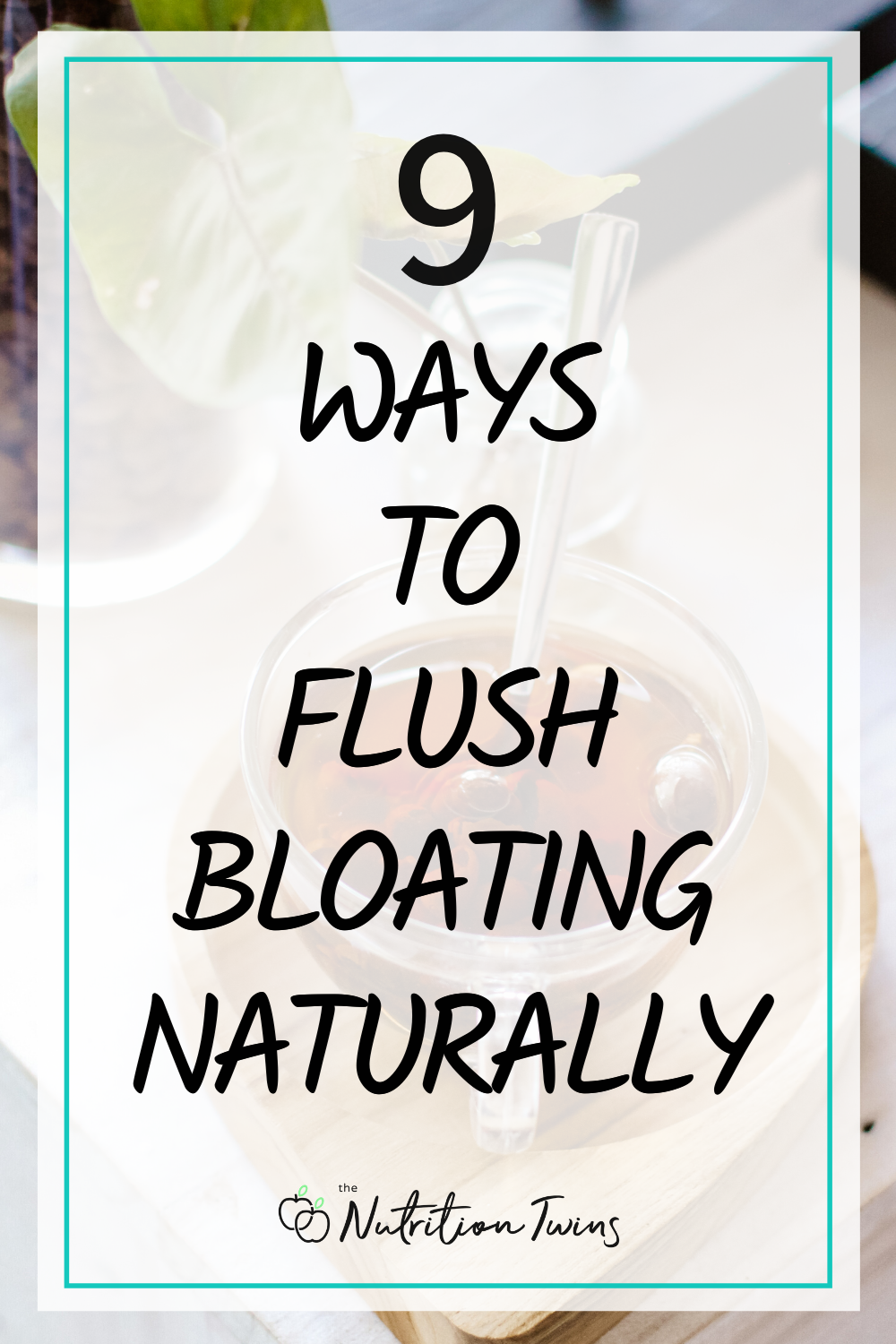
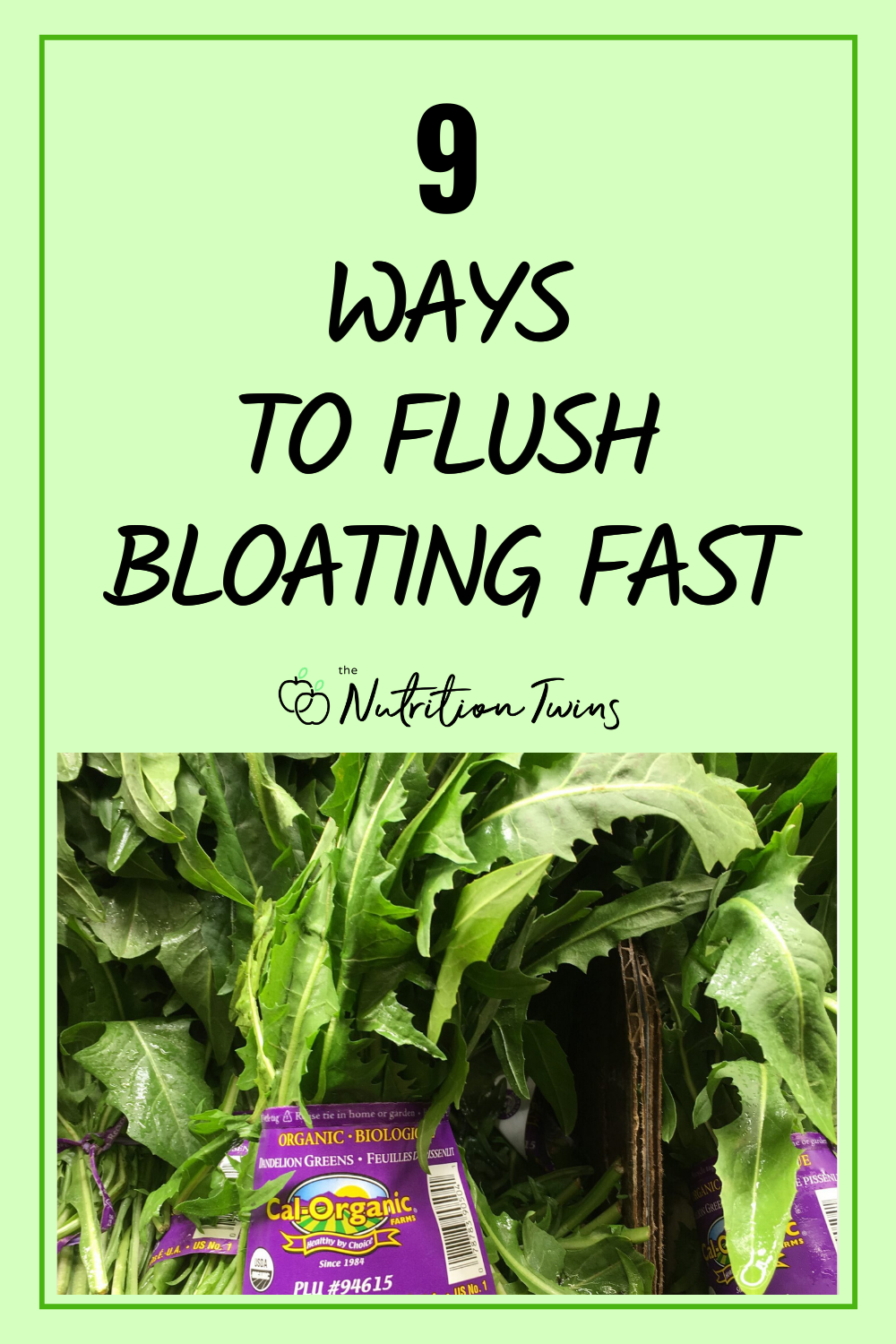
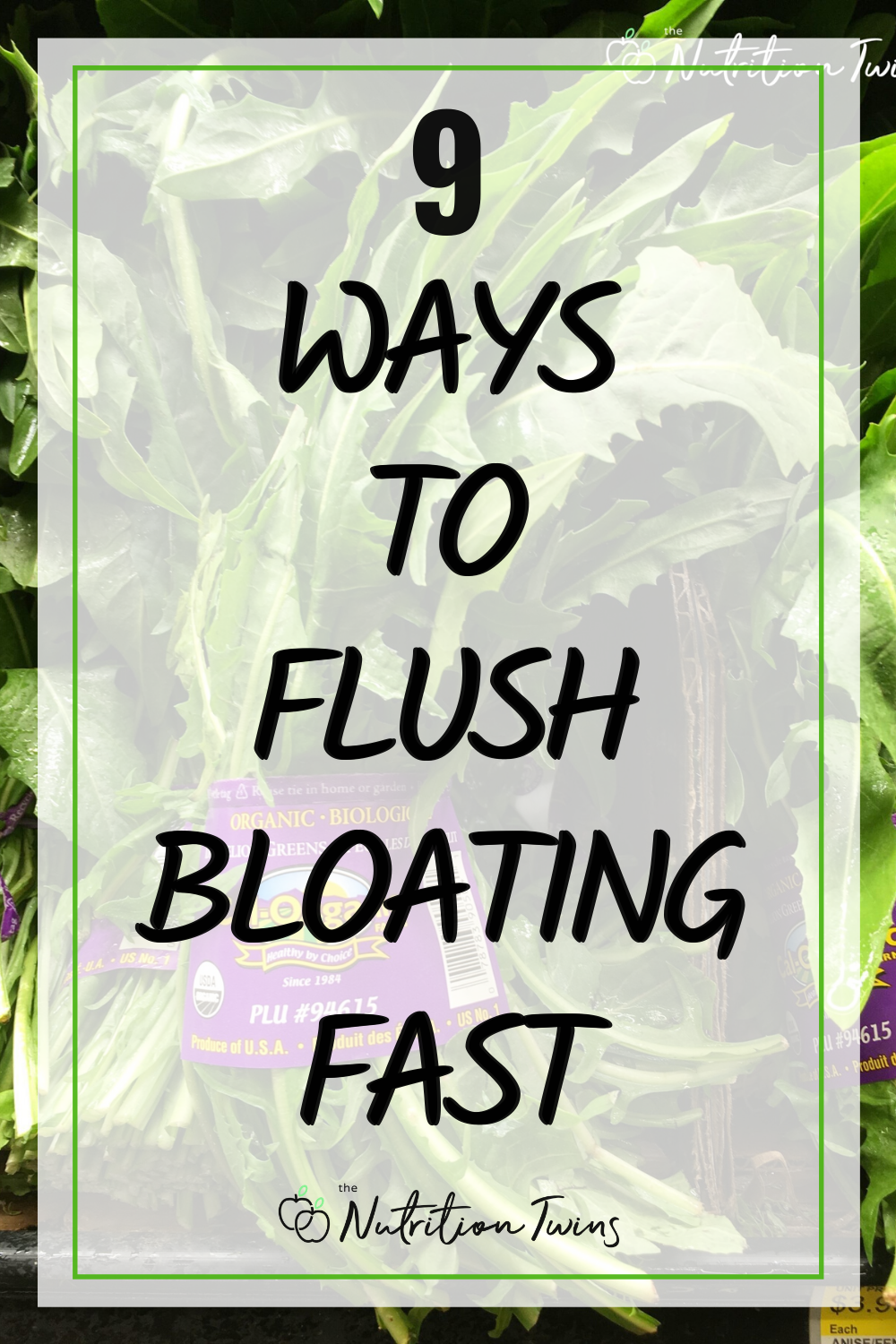
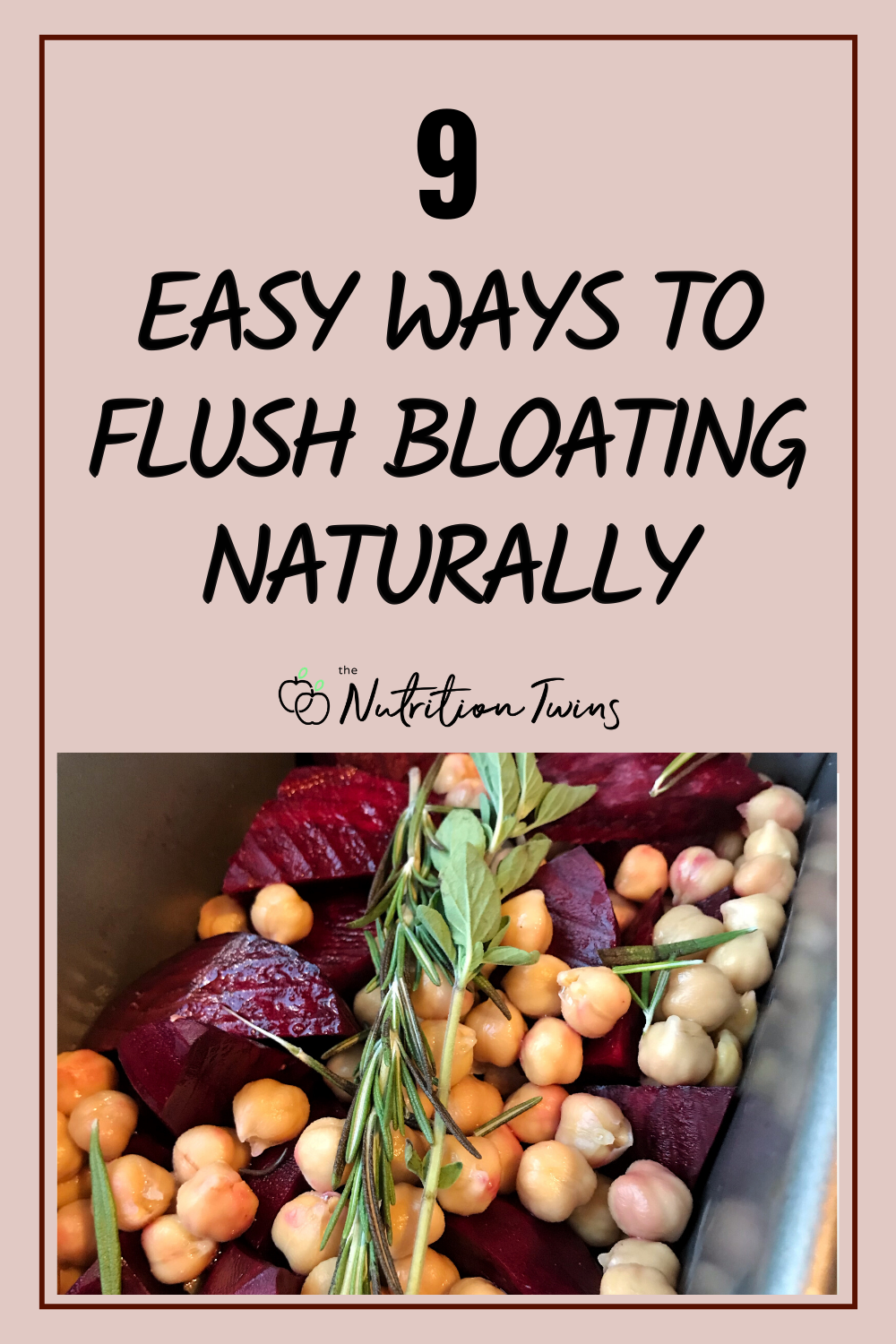
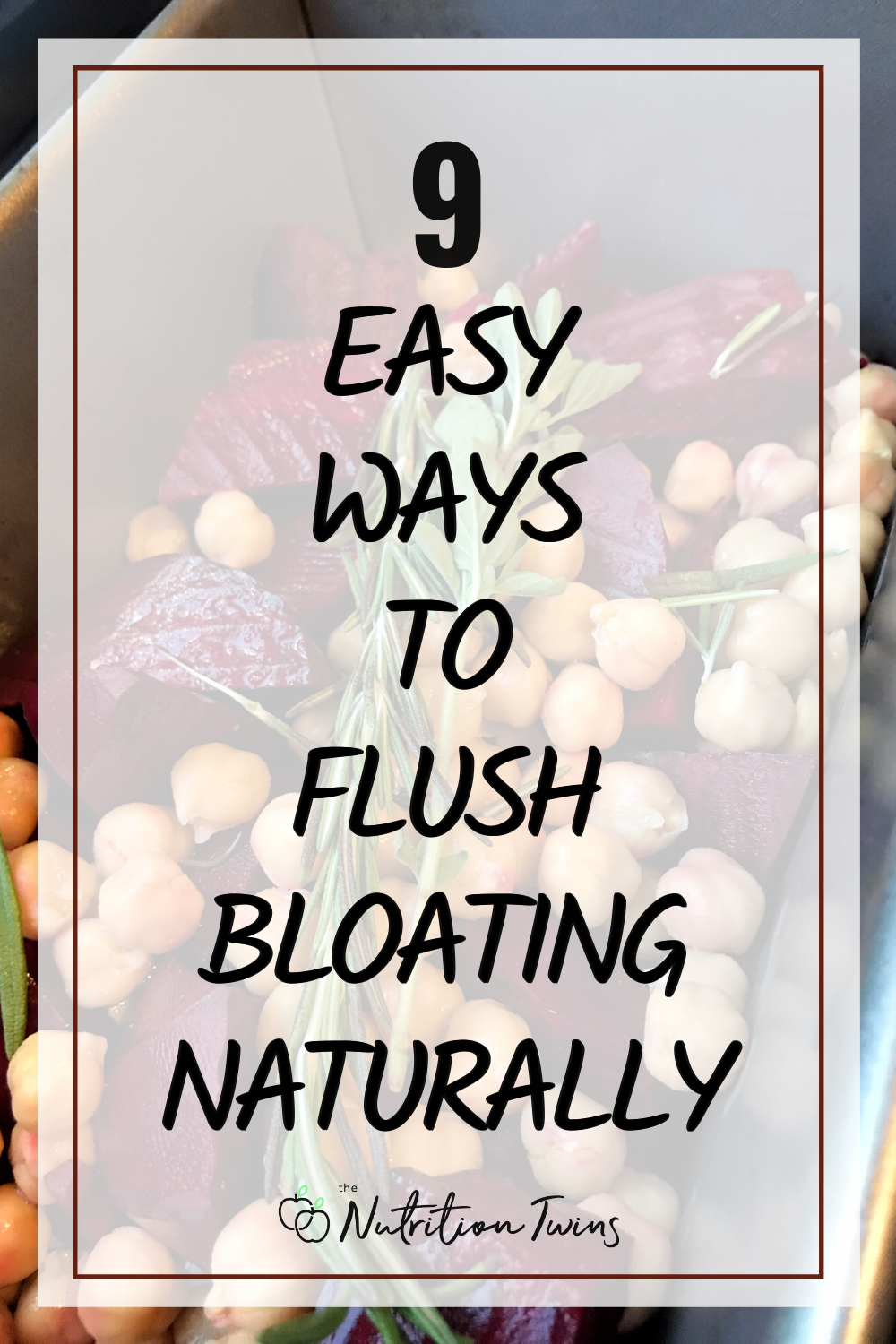


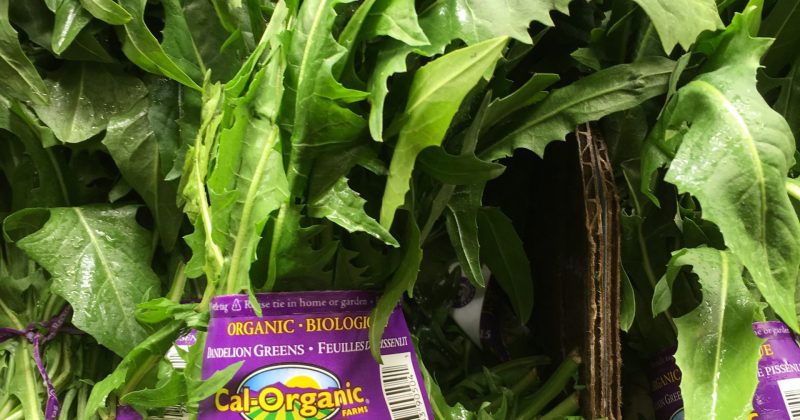

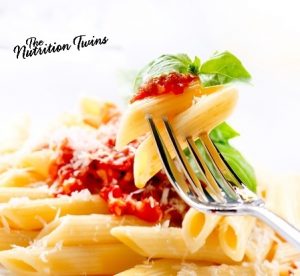
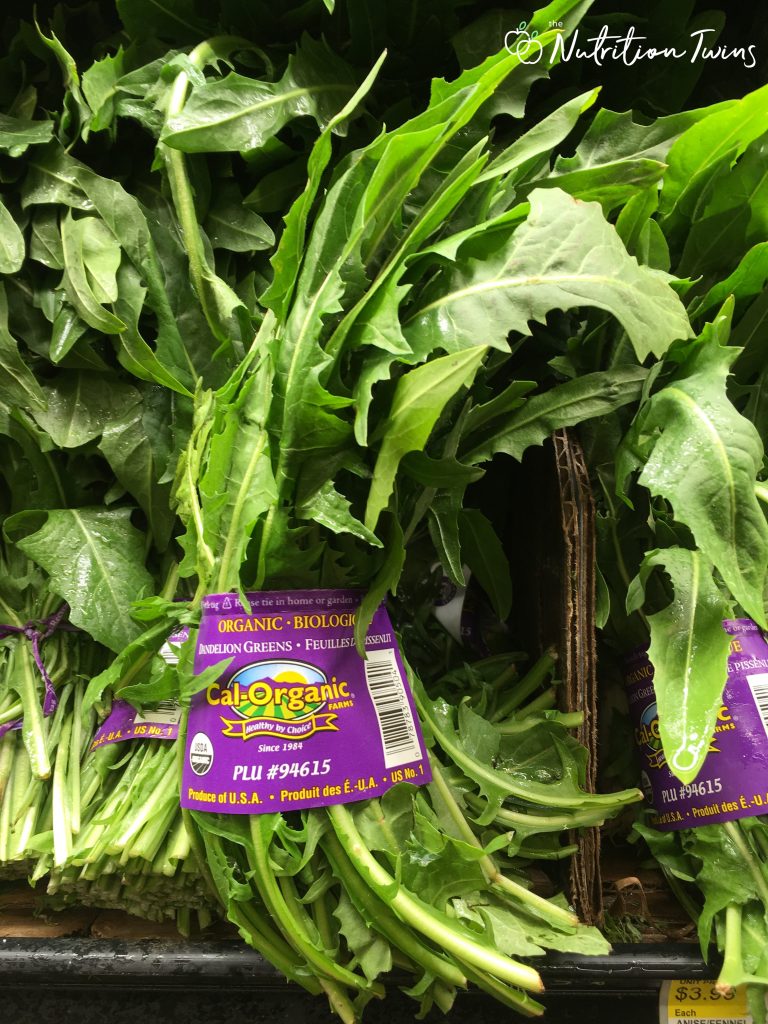
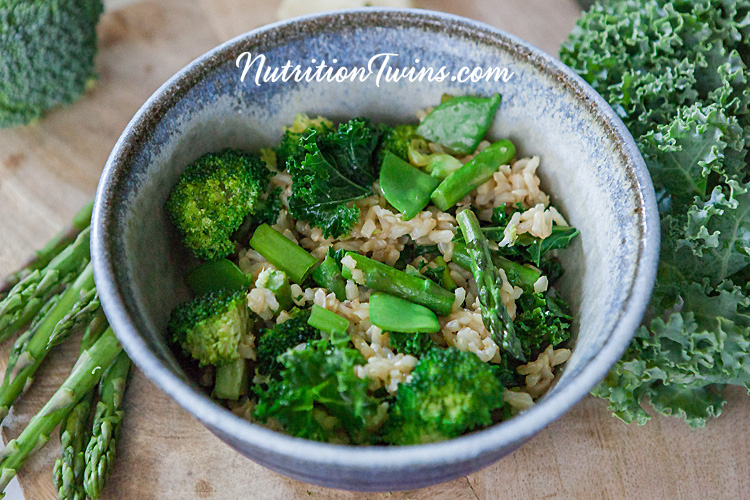
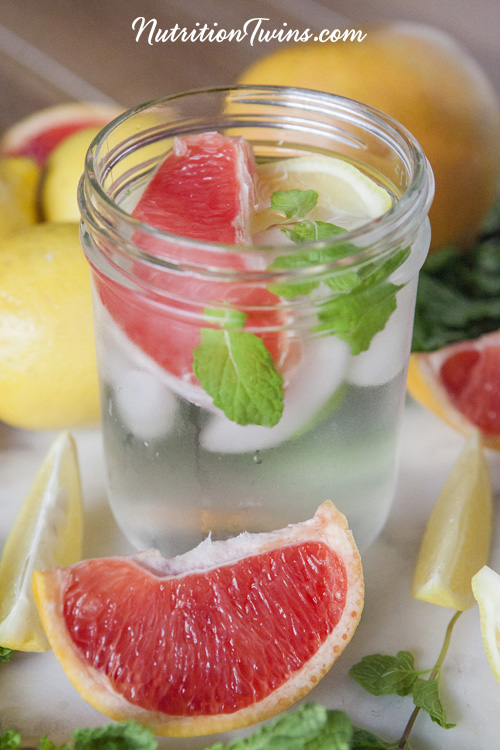
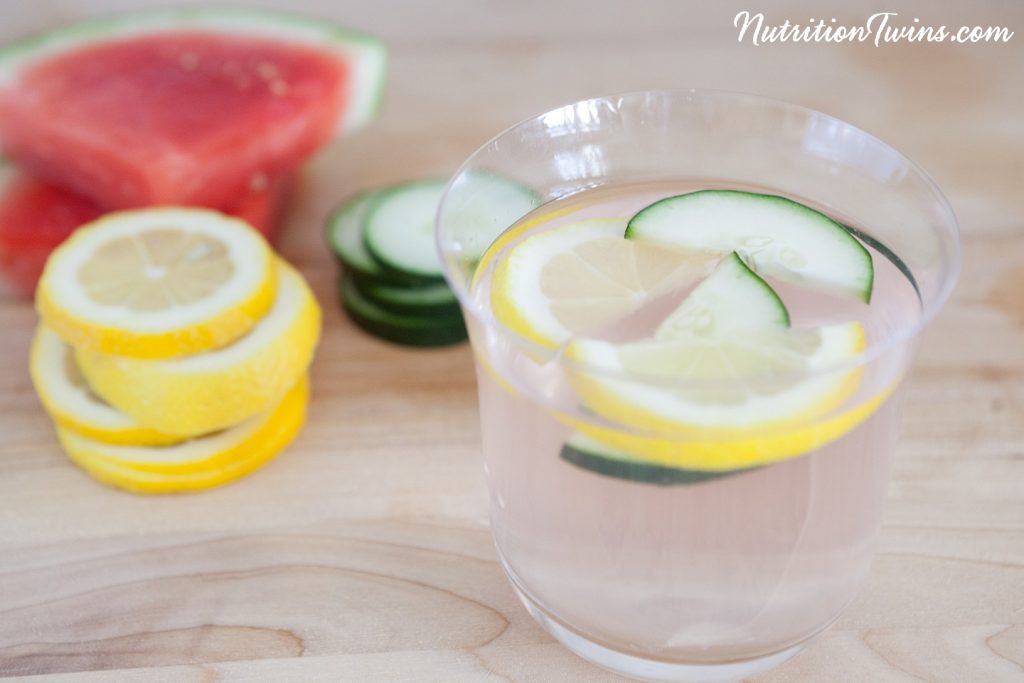
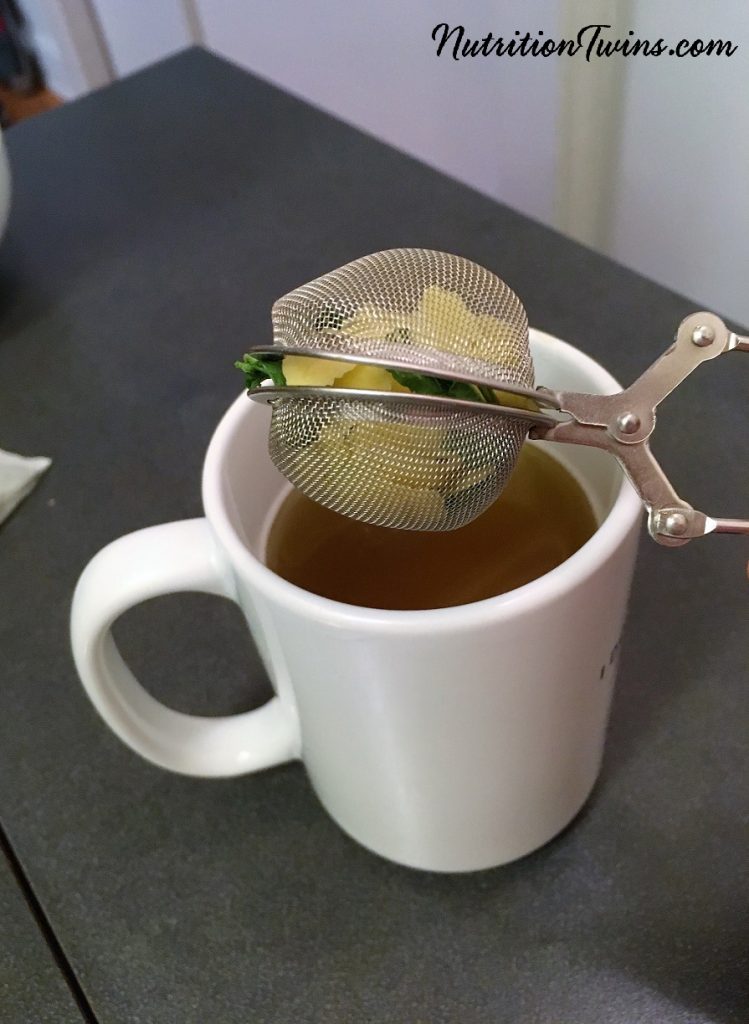
Useful tips have been mentioned in the post. Following these tips can help to fight bloating. Thanks for posting such useful tips.
Congrats, super nice post, very detailed 🙂 It’s useful !